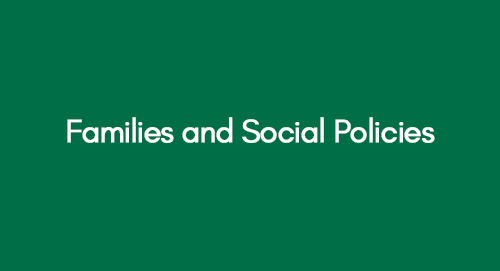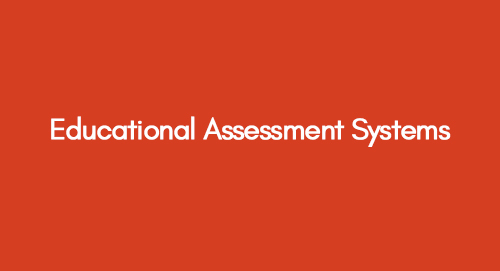
The Importance of Project Leadership in Managing the Risk in Offshore IT Outsourcing : A Study of Service Firms Operating in UK
June 15, 2022
Mobile Business Technology and Design
June 15, 2022Studying families and social policies looks at how rules and support from the government affect families. It's like exploring how laws and help from the government shape how families live and work together.
A family is a private institution that is exempted from public scrutiny and closed off from the rest of the world (Rimmerman,2015).
Figure out What is Social Policy Here
Whereas social policy is functional in an open environment, and connecting the social policies to families rejects the idea of a division between private and public interests (Rimmerman, 2015). Families were found to be troubled and affected through public action and inaction. The government of any country has the primary goals concerned about the family's well-being and the activities related to children within the family. The social policy involves the actions and plans of state agencies of a country, for example, social and health services, schooling systems, and welfare systems. The social policies are affecting the families in one way or the other, such as child protection and adoption, abortion, and laws of marriage and divorce.
Discover Additional Information About Policies Related to Social and Families
Families keep on changing with time, most of the relationships in the families are similar even though they are not being recognized formally. The majority of the families that are dependent on daycare are recognized informally, that a family member or relative has to take care of the child and earn little amount of fee. According to Nissenbaum (2009), Social policy is a subcategory of policy that constitutes the procedures and principles guiding the course of action to deal with individuals within the society. In realization of the importance of social and family policies, the following essay intends to answer the two specific research questions about how the selected group of individuals that is young people in care challenge and celebrates the dominant notion of childhood.
Discussion
The concept of family is incorporated with social institutions and culture, for example, the education and economic system. The norms and values related to the concept of family are varied among societies. The family is the main representative of socialization and it is an institution where individuals learn about social behavior and social roles.
Experiences of Young Children in Care and their Dominant notions of Childhood
According to Tilbury, Buys, and Creed (2009), young people always speak about determination and confidence, relationships, people who encourage them, and discussing their careers, experiences of school life, and stability in life. The experiences of childhood can affect an evolving adult. Due to childhood experiences, children lose their aspirations of becoming occupationally and academically successful.
Learn About the Significance of Education in a Child's Life
Participation in education is crucial to improving the lives of children in care. Schooling is important, therefore strategies are needed to prevent the exclusion of children in care. Policy focus on evolution from care. Federal governments provide initiatives to improve post-school evolution and school retention. Policy in the care system has the responsibility of focusing on the quality of care, in this way issues of career and education are overshadowed (Tilbury, Buys, and Creed, 2009).
The family has children that went through different childhood experiences. According to Metzler et al. (2017), the childhood experience is of various types that including child abuse which has the emotional, physical, and sexual aspects. Children experience abuse by parents or relatives in the house, parents’ separation also adversely affects the children. Health inequalities are considered as an observation of disease and health, that includes violence along with economic and social hierarchies which include ethnicity, class, race, and gender (Metzler et al., 2017).
There are different approaches to studying childhood that includes applied and scientific approach and social construction approach. According to Norozi and Moen (2016), Social construction is the phenomenon of understanding that how childhood or children's knowledge was being constructed and provides different ways to gain knowledge about childhood. The social construction of children has developed various concepts across different societies and cultures. According to the concept of social construction, developmentalism is a consultation in which the childhood or children are constructed, to become better people in their own right. The children should be considered active contributors to the construction of knowledge and society. Children should get directly involved in the construction of knowledge about their childhood and for this purpose ethnography is the best method of science for gaining knowledge about childhood (Norozi and Moen, 2016). The concept of family is supported by the politics of social life. According to Beauregard et al. (2009), the ideology of the functional family has served as the engine for industrialization. The ideology of the functional family has allotted various roles to men and women at home and work. New logic has prevailed across modern societies for the social construction of the family that considers the concept of family based on economics, matrimony, and social values. Different political governments, class and ethnic divisions, and gender cultures have an impact on the distribution of family policies in the different countries of the world (Beauregard et al., 2009). The idea of gay couple marriages in the families has prevailed across different societies of the world and this issue has been the target of several theological and political battles.
Interactive Role of Policy towards the Understanding of Young People in Care
Changes in governance (welfare sector) are the major reason for social policy formulation. According to Gal and Weiss Gal (2010), the social care landscape is changing because of the participation of additional participants in the process of social policy formulation. The concept of social policy has given new opportunities to individuals or professionals and social workers to engage in the formulation of social policy rather than the implementation of policy (Gal and Weiss Gal,2010). The organizations have provided access to a policy process that further provides new opportunities which influence the formulation of social policy.
Several policies have been changed at the level of federal and state legislation. Federal and State health legislations have focused on starting home programs throughout the world (Workshop and Board on Children,2020). The demographic and socioeconomic trends have created challenges that a great number of children are living in poverty. The special supplemental nutrition programs for children and women are moving forward from methods to packages for the provision of food to families. The committees of child development have identified some changes that affect families with children. Firstly, Changes in schedule, nature, and work in which the parents of children are engaged (Workshop and Board on Children,2020). Secondly, children spend their time in child care at a very young age. Third, is the high level of economic hardships across families. Moreover, cultural diversity and disparities are increasing. The committees are focusing on providing awareness regarding the effects of stress on children at a very young age (Workshop and Board on Children,2020).
Conclusion
Social policies are the plans and actions of government and state agencies that affect the families in several ways including policies about education, marriage, crime, child care, and taxes. The countries which have the social policies that support the structure of families have a low rate of violence. Social policy is functional in an open environment and connecting the social policies to families rejects the idea of a division between private and public interests.
References
Weiss-Gal, I. and Levin, L., 2010. Social workers and policy practice: An analysis of job descriptions in Israel. Journal of Policy Practice, 9(3-4), pp.183-200.
Beauregard, T.A., Ozbilgin, M. and Bell, M.P., 2009. Revisiting the social construction of family in the context of work. Journal of managerial psychology.
Norozi, S.A. and Moen, T., 2016. Childhood as a social construction. Journal of Educational and Social Research, 6(2), p.75.
Metzler, M., Merrick, M.T., Klevens, J., Ports, K.A. and Ford, D.C., 2017. Adverse childhood experiences and life opportunities: shifting the narrative. Children and youth services review, 72, pp.141-149.
Workshop, C. and Board on Children, a. (2020). Policy Issues in Early Childhood Development. [online] Ncbi.nlm.nih.gov. Available at: https://www.ncbi.nlm.nih.gov/books/NBK200883/ [Accessed 5 Mar. 2020].
Rimmerman, A., 2015. Family policy and disability. Cambridge University Press.
Nissenbaum, H., 2009. Privacy in context: Technology, policy, and the integrity of social life. Stanford University Press.
Tilbury, C., Buys, N. and Creed, P., 2009. Perspectives of young people in care about their school-to-work transition. Australian Social Work, 62(4), pp.476-490.
Get 3+ Free Dissertation Topics within 24 hours?





























